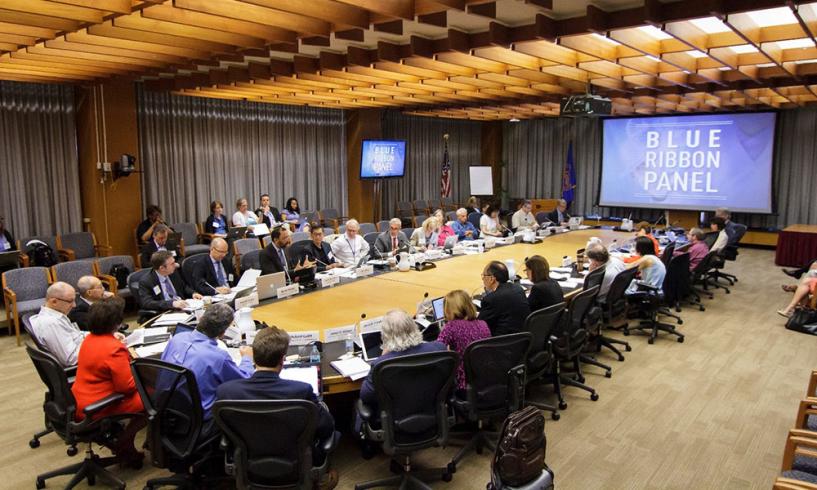On September 7, 2016, the National Cancer Advisory Board (NCAB) and the director of the National Cancer Institute released a report outlining the recommendations provided by the intensive work done by the National Cancer Moonshot’s Blue Ribbon Panel. ONS member and past president Deborah K. Mayer, PhD, RN, AOCN®, FAAN, was part of the Blue Ribbon Panel working on the recommendations and knows that nurses will play an integral role in implementing these changes.
“The Blue Ribbon Panel Recommendations will guide the near future of cancer research to improve cancer care. Nurses will be involved with implementing these recommendations as researchers and clinicians,” Mayer said. “In my 40+ years as an oncology nurse, I have never been so excited about the possibilities that the Cancer Moonshot and the Blue Ribbon Panel recommendations will bring to those with or at risk for cancer. It has been a privilege to participate in this effort representing nursing and survivors working with a group of talented and committed individuals.”
The Blue Ribbon Panel recommendations include
- Establish a network for direct patient involvement.
- Create a clinical trials network devoted exclusively to immunotherapy.
- Develop ways to overcome cancer’s resistance to therapy.
- Build a national cancer data ecosystem.
- Intensify research on the major drivers of childhood cancers.
- Minimize cancer treatment’s debilitating side effects.
- Expand use of proven cancer prevention and early detection strategies.
- Mine past patient data to predict future patient outcomes.
- Develop a three dimensional cancer atlas.
- Develop new cancer technologies.
Developing the Recommendations
In April 2016, the NCAB, under the direction of the National Cancer Moonshot taskforce, created the Blue Ribbon Panel to advise the scientific direction of the Cancer Moonshot. The Blue Ribbon Panel included experts from all across the oncology field, including ONS member Mayer.
The panel created seven working groups, each consisting of 12–20 experts from the cancer community, to examine different facets of the Moonshot. These groups offered recommendations based upon predetermined themes. The seven working groups focused on clinical trials, enhanced data sharing, cancer immunology, implementation sciences, pediatric cancer, precision prevention and early detection, and tumor evolution and progression.
Mayer was present on the implementation sciences working group, where she was joined by another ONS member, Kathleen Mooney, PhD, RN, FAAN, as they worked to define how new treatments, research, and advancements in cancer care could be incorporated into everyday practice. For the clinical trials working group, ONS member Jeannine Brant, PhD, APRN, AOCN®, FAAN, gave voice to the unique perspective of oncology nurses and helped provide recommendations to the Blue Ribbon Panel.
ONS Continues to Support the Cancer Moonshot
In May 2016, the Cancer Moonshot asked for organizations to submit information regarding their support for the initiative’s goals. ONS answered the call and provided tangible examples of how it was already working toward the Moonshot’s goals. ONS’s Oncology Qualified Clinical Data Registry, introduced in 2015, is a curated resource that applies quality measures for institutions to translate scientific data and accelerate the speed at which meaningful practice change is implemented into everyday practice.
Furthermore, ONS supports evidence-based practices through its curated Putting Evidence Into Practice resources. These are updated and revised frequently to provide the latest validated intervention recommendations to oncology nurses.
ONS has also been working with stakeholders to explore strategies to reduce readmission rates and emergency department visits for patients with cancer. ONS will continue to support the importance of nurses in the overall management of care coordination for their patients.
With the release of the Blue Ribbon Panel’s recommendations, ONS will ensure that its work supports oncology nurses as the Cancer Moonshot continues to progress. Without nurses, the healthcare system is like a body without a skeleton—it can’t be supported and it can’t move forward. Nurses are the foundation to changing health care and advancing the fight against cancer.






